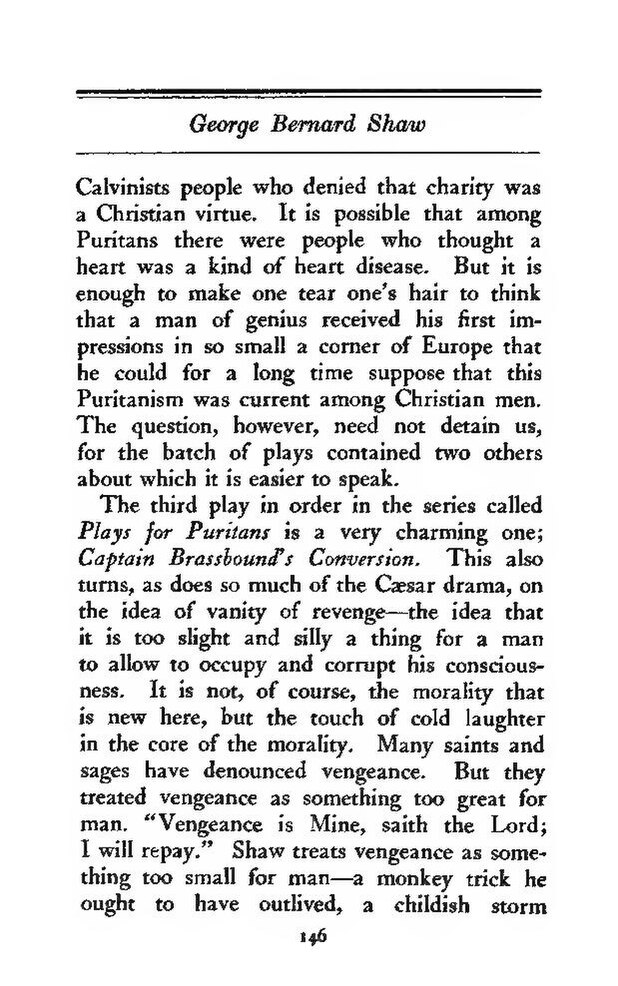Calvinists people who denied that charity was a Christian virtue. It is possible that among Puritans there were people who thought a heart was a kind of heart disease. But it is enough to make one tear one's hair to think that a man of genius received his first impressions in so small a corner of Europe that he could for a long time suppose that this Puritanism was current among Christian men. The question, however, need not detain us, for the batch of plays contained two others about which it is easier to speak.
The third play in order in the series called Plays for Puritans is a very charming one; Captain Brassbound's Conversion. This also turns, as does so much of the Cæsar drama, on the idea of vanity of revenge—the idea that it is too slight and silly a thing for a man to allow to occupy and corrupt his consciousness. It is not, of course, the morality that is new here, but the touch of cold laughter in the core of the morality. Many saints and sages have denounced vengeance. But they treated vengeance as something too great for man. "Vengeance is Mine, saith the Lord; I will repay." Shaw treats vengeance as something too small for man—a monkey trick he ought to have outlived, a childish storm
146
